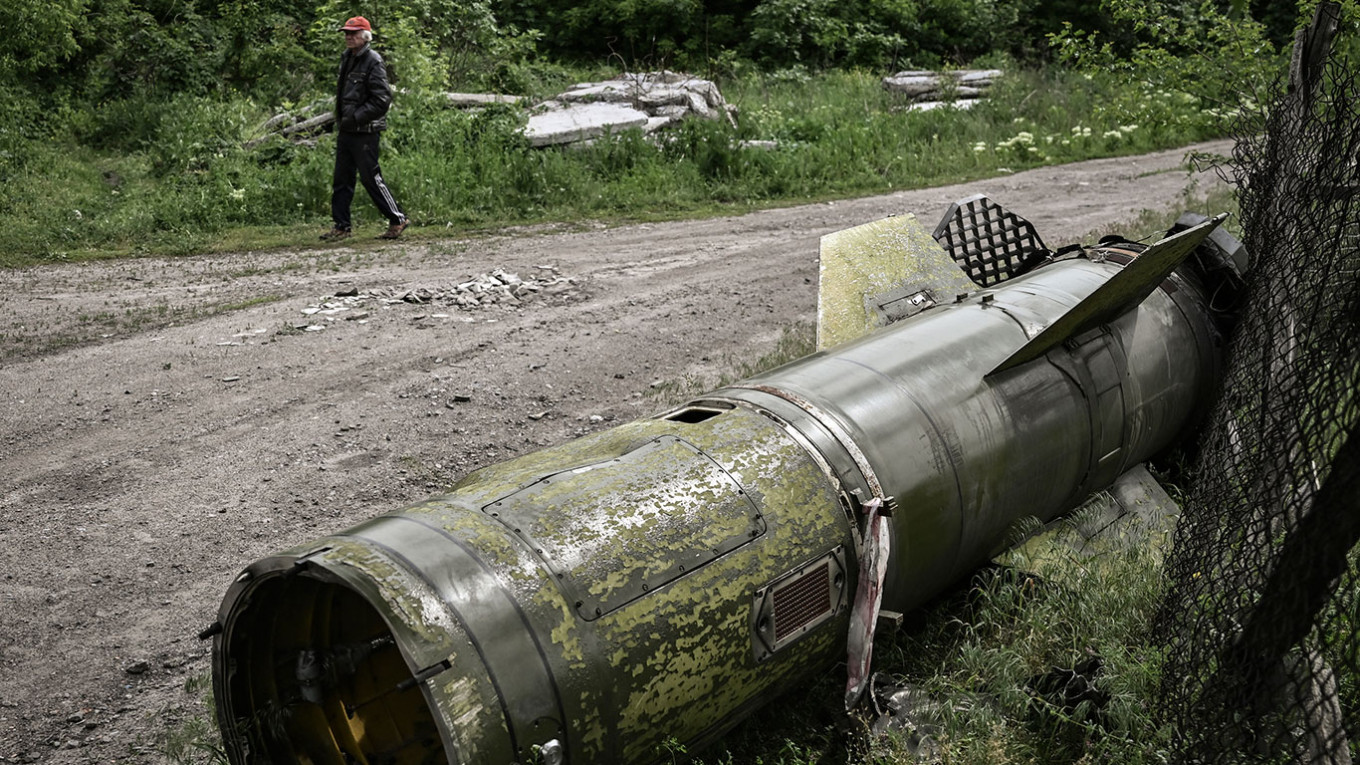
Ukraine’s President Volodymyr Zelensky accused Moscow of carrying out a “genocide” in the eastern region of Donbas, where the city of Severodonetsk is suffering an onslaught of Russian shelling.
In his daily televised address, Zelensky condemned Moscow’s brutal assault on the Donbas — where it has redirected its forces after having failed to capture Kyiv — adding that its bombardment could leave the entire region “uninhabited.”
“All this, including the deportation of our people and the mass killings of civilians, is an obvious policy of genocide pursued by Russia,” he said.
Pro-Moscow separatist groups have since 2014 controlled parts of Donbas, but Russia now appears set on taking the whole region.
Invading forces are closing in on several cities, including the strategically located Severodonetsk and Lysychansk, which stand on the crucial route to Ukraine’s eastern administrative center in Kramatorsk.
Three people died in attacks on those two cities, Kyiv’s Deputy Defense Minister Ganna Malyar told journalists, saying that fighting in the east has reached “its maximum intensity” since Russia invaded on Feb. 24.
“The situation remains difficult, because the Russian army has thrown all its forces at taking the Luhansk region,” regional governor Sergiy Gaiday said in a video on Telegram.
“Extremely fierce fighting is taking place on the outskirts of Severodonetsk. They are simply destroying the city, they are shelling it every day, shelling without pause.”
‘Not scared’
In Kramatorsk, children roamed the rubble left by Russian attacks as the sound of artillery fire boomed.
“I am not scared,” said Yevgen, a somber-looking 13-year-old who moved to Kramatorsk with his mother from the ruins of his village Galyna.
“I got used to the shelling,” he declared as he sat alone on a slab of a destroyed apartment block.
To the northwest, in Ukraine’s second city of Kharkiv, shelling killed another nine people and wounded 19, officials said.
“Today the enemy insidiously fired on Kharkiv,” regional governor Oleg Sinegubov said on social media, warning residents to evacuate to air raid shelters.
An AFP reporter in Kharkiv saw plumes of smoke rising from the stricken area, along with several people injured near a shuttered shopping center.
An elderly man with injuries to his arm and leg was carried away by medics.
And in the south, hints at what awaits those cities should they fall to Russian forces were emerging in Mariupol, which was taken over by invading forces this month after a devastating siege that left thousands dead and reduced the city to rubble.
Occupying authorities there cancelled school holidays to prepare students to switch to a Russian curriculum, said a Ukrainian official.
“Throughout the summer, children will have to study Russian language, literature and history as well as math classes in Russian,” city official Petro Andryushchenko wrote on social media.
The aim in the bombarded city, he said, was “to remove Ukraine from the curriculum and prepare them for going back to school with a Russian curriculum.”
The Kremlin is seeking to tighten its grip over the parts of Ukraine it occupies, including fast-tracking citizenship for residents of two southern regions that are mostly under Russian control.
The United States has branded the plan an “attempt to subjugate the people of Ukraine.”
‘Trust is lost’
The intensified fighting across the country prompted Foreign Minister Dmytro Kuleba to air Kyiv’s increasing frustration with the West, accusing allies of dragging their feet on arms deliveries and telling his German counterpart that Ukraine needs heavy weapons “as soon as possible.”
Finnish Prime Minister Sanna Marin became the latest Western official to visit Kyiv on Thursday, where she said it would take Russia decades to repair its standing in the world after invading Ukraine.
“Trust is lost for generations,” Marin told a press conference.
German Chancellor Olaf Scholz, who has faced criticism over Berlin’s slow response, also weighed in Thursday, saying Russian President Vladimir Putin will not negotiate seriously until he realizes he might not win in Ukraine.
“Our goal is crystal-clear — Putin must not win this war. And I am convinced that he will not win it,” Scholz told the World Economic Forum in Davos.
The flow of grain exports from Ukraine, known as Europe’s breadbasket, has been disrupted since Russia’s invasion, threatening food security around the world and sending prices soaring.
The Kremlin on Thursday pointed the finger at Western countries for stopping grain-carrying vessels from leaving ports in Ukraine — rejecting accusations that Russia was to blame.
President Putin said in a telephone call with Italy’s Prime Minister Mario Draghi that Moscow was ready to make a “significant contribution” to averting a looming food crisis if the West lifts sanctions imposed on his country over Ukraine.
But the United States scoffed at the offer.
“Now they’re using economic tools as weapons. They’re weaponizing food. They’re weaponizing economic assistance,” Pentagon spokesman John Kirby said.
“I guess we shouldn’t be surprised by that, since they’ve weaponized everything else, including lies and information,” he said.